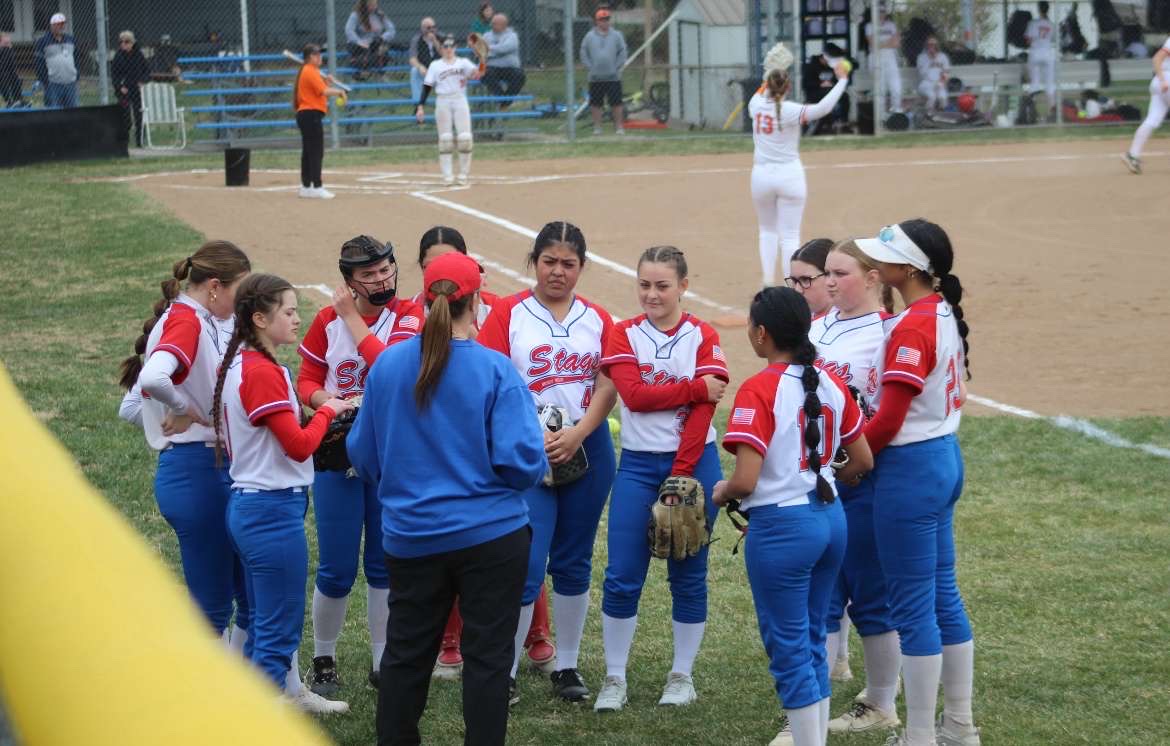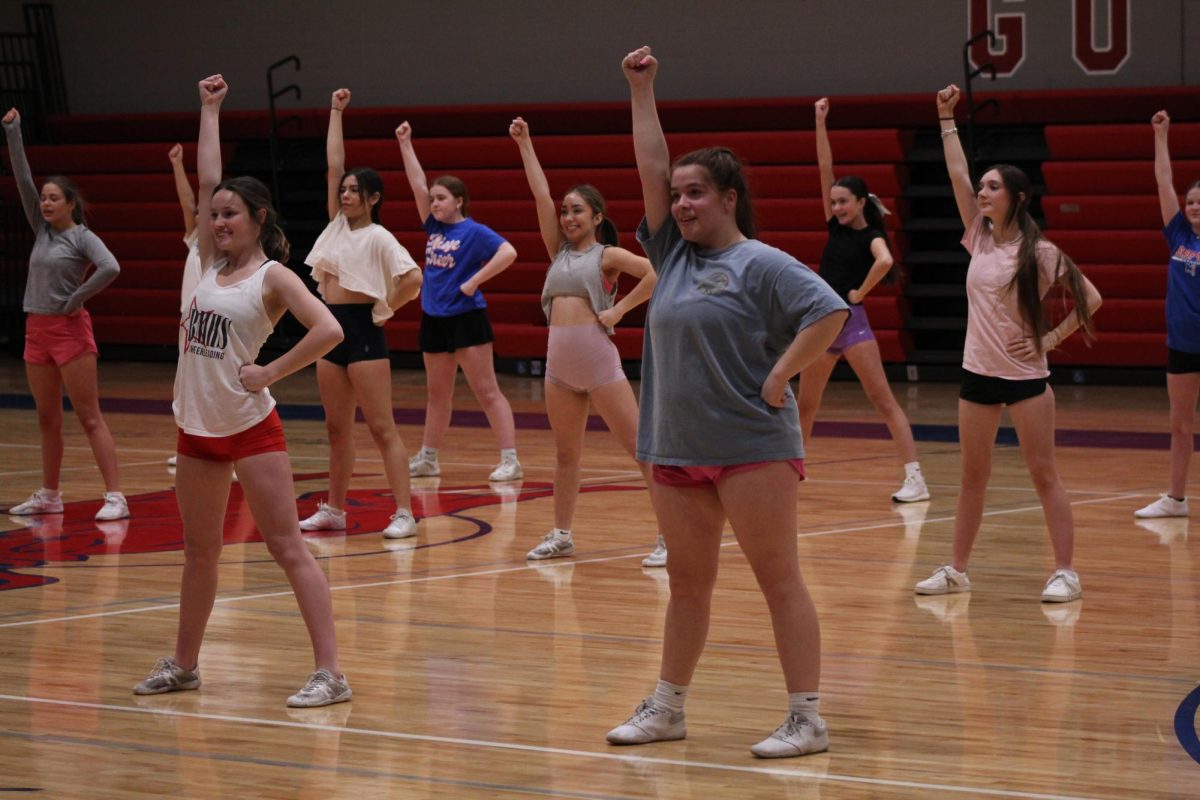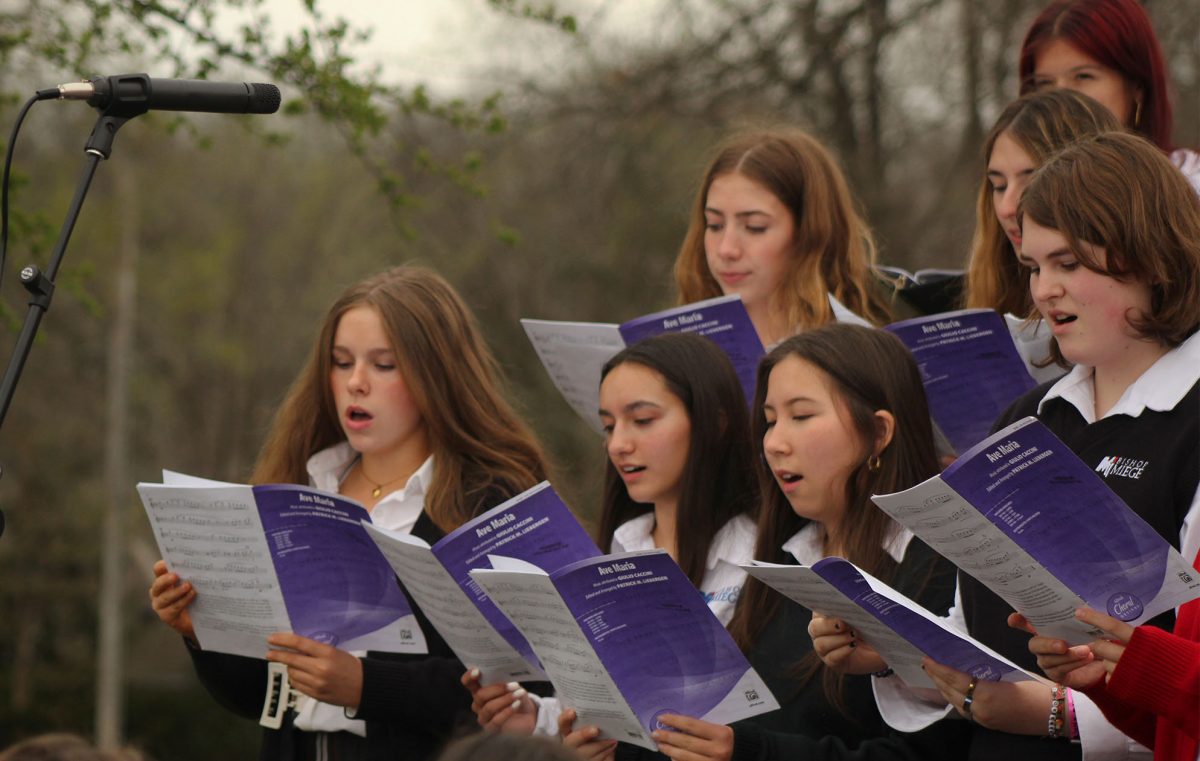As junior Spencer Moxley imports coding into his 3D printer, he watches his multidimensional fidget toy products come to life, ready to be sold to students and faculty under his storefront “Spencer’s 3D Things”.
Moxley has developed a couple of businesses over his high school career such as drone videoing, freeze-dried candy or, the one he deems most promising, his fidget toy company. Combining his technological and entrepreneurship interests, the toys have spiked the attention of the student body.
“I started back in 2020 with a cheap printer I got, and that was fun, but it was so tedious that I kind of fell out of 3d printing for a little bit,” Moxley said. “Just recently, a very popular brand of 3d printers released a cheap alternative, which I got for Christmas, that led me to get back into printing for personal use. Once I started doing it more, I realized people are interested in the stuff I make, so much so that I’m able to sell it.”
Committing about 5 hours a week to make the fidgets, Moxley finds models he deems captivating online and imports them into his printer for final execution. These designs are intended to help people concentrate harder in class or for satisfying use.
“Part of business success is sales,” Moxley said. “A lot of people see me using them during class or I’ll hand them out, and people can try them, and they kind of sell themselves.
Inspired by those closest to him, Moxely credits his entrepreneurship ambitions to his family members who have pursuits of their own.
“My parents own the PLATO closet on Mission and have started a couple of other businesses over the years,” Moxley said. “My brother owns a lawn care business that I work for, and so that’s definitely where I get it from. Seeing them do that makes me think about how that’s what I want to do myself.”
Founder of Warden’s Detailing, senior Nolan Ward has also found inspiration in looking to others. After working at a car wash he decided to use the money he saved to buy equipment to start a car detailing business.
“It’s mobile service-based, so I go to the clients,” Ward said. “There’s different services I offer: doing the interiors of cars, the exteriors of cars, and we also offer additional protection. That’s what most people use detailing for, it’s not just to clean, but to protect their belongings and investments.”
In the first year of business, Ward has spent most of his profit reinvesting into the company and adding to his savings account. Although he has made over $12k in profit, money is not the only thing that fuels his desire for success.
“My passion is helping people out who feel overwhelmed,” Ward said. “So a lot of people contact us when they feel like they can’t clean the mess that’s accumulated. For them, it’s very hassle-free, we go to them so they don’t have to worry about anything. We take the problem off their hands, and it gives me a lot of satisfaction.”
While running a business can be rewarding, many students go a more traditional route. Having a plethora of jobs ranging from retail to lifeguarding to busing tables, high schoolers work with the intent of making some extra cash to support their lifestyle. While some are more frivolous with their hard-earned funds others frugally spend in efforts to develop a strong savings account.
During the school year sophomore Lucy Herrold spends about five hours a week bussing tables at a Mexican restaurant in Downtown Overland Park.
“I typically save the checks that I make and spend my tip money,” Herrold said. “I do this because I need the money in my savings to buy a car, pay for the college classes I’m taking and my future college tuition.”
Although Herrold finds it crucial to save, she admits spending a little money once in a while keeps her from burning out.
“The main things I spend my money on are food as well as activities I do during time with my friends and family,” Herrold said. “I think it is important to ‘treat yourself from time to time, as all work and no rest can be unhealthy.”
However, having a job isn’t a priority for all students. Senior Emily Luckenato opts to prioritize her school work and take advantage of the less stressful time before she has to enter the workforce. Even though Luckenato has more free time, she admits that the lack of spending money can be frustrating.
“I rarely spend money on food because I never have cash, and when I do I usually use gift cards or my birthday money,” Luckenato said. “Even though I have a credit card, I’m not allowed to use it unless it is for gas, an emergency, or I have special permission.”
Luckenatto credits not working for the last four years as a key factor in developing a consistent schedule, leading to academic success. Prioritizing an organized, low-stress life is worth not having the extra money she said.
“I have a lot more free time than my friends who work,” Luckenato said. “I don’t have to worry about losing my job. I can focus more on my grades and hang out with my friends. People with jobs often have an inconsistent schedule depending on where they work and I am thankful I don’t have to deal with that.”
As students prepare themselves to enter economic adulthood, personal finance teacher Lori Dowd strives to make the transition as easy as possible, incorporating real-world life skills into her curriculum. Starting this year personal finance will be required for the class of 2028 and beyond. Dowd has been championing this change since she started teaching at Miege, as this is a mandatory class in most other states.
“We’re starting with their grocery list, making up a menu, and seeing how much what they’re used to eating actually costs,” Dowd said. “We’ve gone through unit pricing for shopping, and we’ll do checkbook saving, credit all of that good stuff. It’s pretty much all you need to know for adulting in the finance world.”
According to Dowd, it is crucial for students to learn how to be fiscally responsible in high school to be ready for the future. By teaching about economics, budgeting, paychecks, taxes and the different types of spending students will leave her class with a broader knowledge of how systems work. Even starting small, Dowd advises, can get teens in the practice for what they will have to do on a broader scale later in life.
“Be aware of where you’re spending your money, because most of you don’t have bills every month so you spend money on wants, not needs,” Dowd said. “Trying to save a little bit, even $5 a week would be nice to put away so by the end of the year, you’ve got a nice little sum.”







